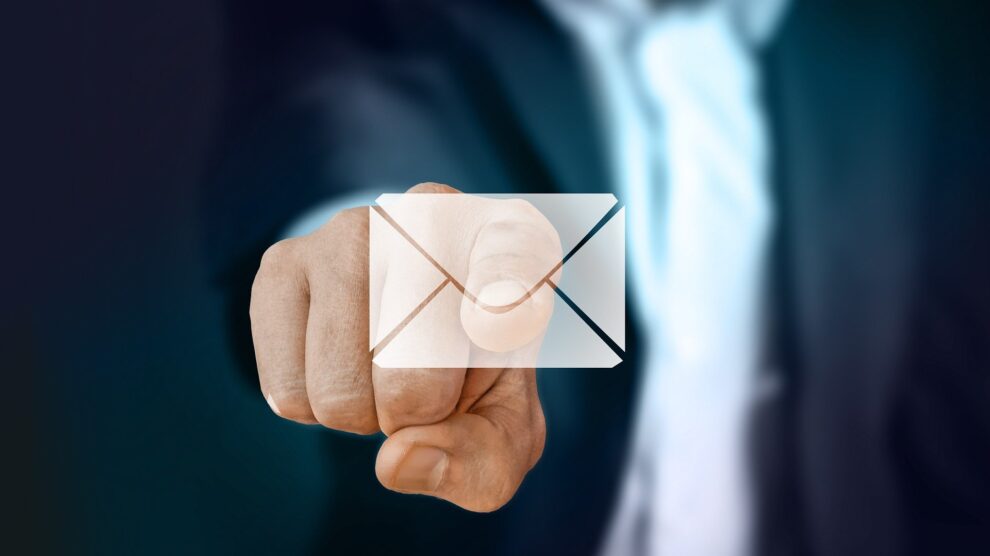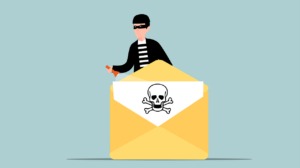Wake up, check your email. Make coffee, check your email. Sound familiar? If you’re addicted to checking your email, it’s time to come clean. The average person checks their email roughly 15 times per day, with many of us checking it even more frequently. It can be hard to cut back; the thought of a missed email languishing in your inbox, while your boss stares at her watch counting the seconds until you reply, is truly bone-chilling. However, evidence suggests that over-checking your email isn’t doing you any favors; in fact, it’s hurting your productivity and increasing your stress levels.
Research has demonstrated that people who are constantly interrupted don’t concentrate very well, which is something we’ve all experienced at some point. Checking email too often can quickly become a procrastination tactic, one that saps your energy and leaves you with the feeling that you didn’t get anything done. Experts recommend scheduling time blocks during the day when you check your email and letting colleagues know that they should call for urgent requests. Read on for more suggestions from industry leaders on how you can reclaim your time and quit refreshing your email.
Improved Productivity
“There is a difference between being busy and being productive, and answering emails typically just makes you busy. It takes time to get into the groove when you’re doing the kind of work that requires concentration. When you check your email too often, you not only lose the time spent reading your email but also the time you then have to spend refocusing and getting back to what you were doing. Setting time blocks where you can check your email will help you gain that time back, and spend more time actually doing productive work instead of just busy work.” – Ryan Rottman, Co-Founder and CEO of OSDB
It’s Probably Not That Urgent
“Not every email requires an instant response, and not every email requires a response from you specifically. One problem associated with checking your email often is that you end up treating every email as urgent, when it often isn’t. Let some emails wait while you get other work done, and give other people a chance to weigh in before you jump to respond. If you designate time during your day to check your emails, you can then give your emails dedicated attention. You’ll probably give more thoughtful responses than if you just dash off quick replies while heading into a meeting.” – Nancy L Belcher, Ph.D., MPA and Co-founder of Winona
More Email = More Stress
“A lot of the emails we receive on a daily basis are purely distraction – they don’t impact our work, but they take up a lot of time that could be redirected towards more productive tasks. When you devote most of your day to reading and answering emails, you not only neglect more important work, but you remain at a fairly high stress level throughout the day. Research has indicated that people who check their email frequently report feeling more overwhelmed, and less in control of their workload. Let people know how to reach you for anything urgent, and reduce your email reading habit to a few times per day.” – John Berry, CEO and Managing Partner of Berry Law
Keep Yourself from Micromanaging
“Checking email less frequently is especially difficult for people who tend to micromanage, but they’re the ones most likely to benefit from a reduction in email time. If you’re sending out emails constantly throughout the day, micromanaging tasks far beyond what is necessary, it’s probably making your team a lot less productive. This isn’t good for the company, or for your team. By checking emails less often, you give your team time and space to do their work effectively and efficiently. Also, if you’re constantly going back and forth over email, it’s probably a sign that you need to jump on a call or schedule a meeting to make sure things are clear.” – Michael Hennessy, Founder and CEO of Diathrive
You Might Be Overcommitting
“If you check your email constantly throughout the day, you might find yourself overcommitting to projects. There’s a temptation to say yes to everything that crosses your inbox, especially if you’re the first person to reply to an email chain. Give your inbox some breathing room, and give other people time to help solve problems. By checking your email less often, you’ll find that a lot of issues resolve themselves, or that they didn’t require your input after all. This will end up freeing up more of your time to devote to projects that do require your time and input.” – Jason Boehle, CEO of QuaGrowth
Focus on Long-Term Projects
“Reading and responding to emails can feel like putting out dozens of tiny fires. But if you saw a big fire approaching in the distance, you would probably want to devote more of your attention to fighting that one instead. It can be the same with long-term work projects. These are the projects that typically have a higher payoff, and require a lot more focus. Instead of spending your day focused on emails, delegate more of those smaller tasks and resolve to check in on your inbox a few times per day. That way you have more time to devote to the important projects that will have a much bigger impact.” – Chris Gadek, Head of Growth at AdQuick
Enjoy Quality Time Off
“It’s important to focus while you’re at work, and it’s equally important to unplug when you’re not at work. If you’re checking email after work hours, you’re depriving yourself of the rest and relaxation that will ultimately make you better at your job. People who work around the clock quickly get burned out, and they tend to burn out the people around them too. If you send out a lot of evening emails, you’re setting the precedent for your team that they should also be working around the clock. Resolve not to check emails after work hours, unless absolutely necessary, and give yourself time to reset and recharge.” – Chris Vaughn, CEO of Emjay
Establish a Routine
“The most productive people you know probably have a solid routine. When your day is divided into different types of tasks – administrative tasks in one block, focused work in another, meetings and phone calls in a third, etc. – you’ll end up getting a lot more done. Task switching is very difficult, cognitively, and it encourages both procrastination and poor time management. Answering emails throughout the day is distracting, and it takes you out of more important tasks that require your concentration. By setting routine times for checking your emails, preferably just a few times per day, you’ll be surprised at how much more you’re able to get done.” – Anthony Puopolo, CMO of REX MD
Regain Your Focus
“Every time I would check my inbox, I pivoted from my game plan for the hour and got stuck answering emails and requests from other people instead. Hours later, I’d realize that I didn’t accomplish more than 75% of what I had planned for the day. Going a day or two without checking my inbox let me focus on the tasks on my calendar and stick to deadlines.” – Jen Glantz, CEO of Bridesmaid for Hire
Stop Re-Reading Messages
“When we check a crowded inbox, we end up re-reading emails over and over again. We can’t help it; if they’re there, we read them. On average, professionals have more than 200 emails in their inbox and receive 120 new ones each day but respond to only 25% of them. Without a conscious clear-out plan, the backlog keeps building. And, if people go to their inboxes 15 times per day and spend just four seconds looking at each email (the time it takes to read the average preview text) and re-reading only 10% of them (an estimate based on the number of messages that fit on average computer screen), they’ll lose 27 minutes each day.” – Matt Plummer, Founder of Zarvana
You have a lot of work-related goals, and writing the perfect email probably isn’t one of them. Emails are an unavoidable part of our work lives, but they don’t need to take over your schedule. Create a schedule for checking your emails, and stick to it. You can even put it in your calendar if it helps you stay on track. Expect a few days of anxiety initially, but after a week you’ll find you’ve checked a lot of items off your to-do list. It’s time to break your bad email habits once and for all and reclaim your time.





